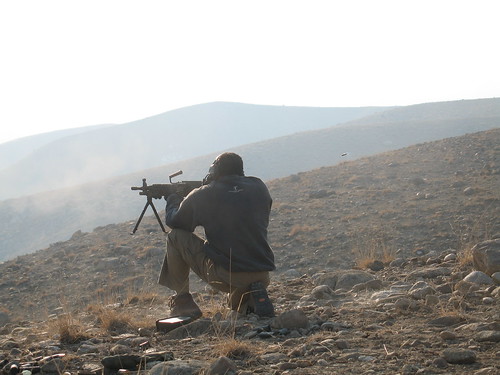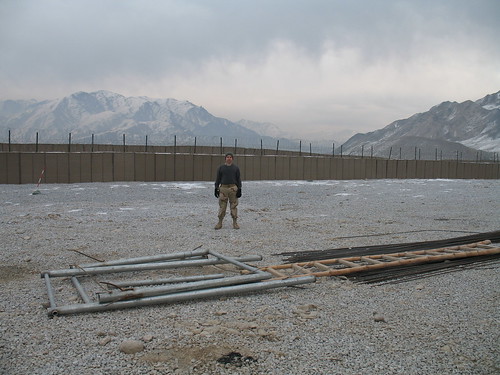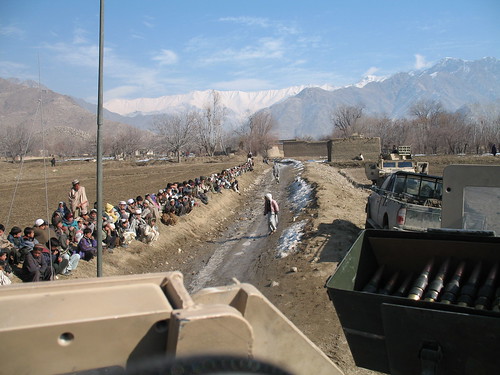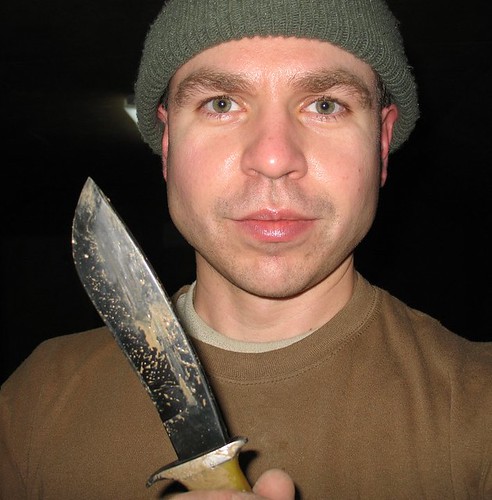I knew veterans, growing up.
My mother’s father had served in the Army Air Corps in World War
II. My mother’s stepfather had been a
sailor in the same conflict. My father’s
father had been a Soldier in World War II, and my father’s older brother had
fought in Korea as a paratrooper. I
admired the service of these men, and eagerly listened anytime they felt like
talking about their experiences. My
maternal grandfather had been a navigator on bombers, and his stories mostly
involved pleasant experiences in the air and while training in Florida. My paternal grandfather was a man of his
hands, and he would talk about the guns he used, and what they could do, while
my mother’s stepfather never talked about his service. My mother explained that he had served on
destroyers, and was haunted by the screams of men who had drowned when their sealed
compartment had flooded. Service clearly
left survivors with stories, but some of them no-one would want.
I was very interested in the service, but was talked out of
joining when I was nearing high school graduation. I went into the civilian workforce. When I was about 28, I again considered
enlisting, but decided military service would not help me further my goals.
I had been working for a telecom company for several years
by September of 2001. On the morning of September 9, one of my coworker friends called me as I was about to leave for
work. He said a light airplane had
crashed into the World Trade Center. I
headed into work.
At the call center, we had overhead monitors hung where they
were visible by everyone. Most of the
time, the monitors displayed call center stats or regional information, but today
they played the news. We saw the second
airplane go in moments after it happened, and then saw it from different angles
as more footage came in. We hoped and
prayed for the lives of thousands trapped in the enormous buildings as they
burned, and then crumbled. As the events
of the day continued to unfold, I fielded many calls that my care reps were
struggling to handle. I found myself explaining
again and again to callers desperate to reach friends and family in New York
the problems we were facing: a phone system flooded with calls, antennas lost
on the World Trade Center, and available signal in use by thousands of emergency
responders.
When the day was over, I waited to see what my country’s
leadership would do. I admired President
Bush’s strong stance, while being alarmed at his “with us or against us”
national rhetoric. I waited to see if we
would take substantive action, or just fire some cruise missiles as token
retribution for our thousands of innocent dead.
I supported a strong national response, believing that forceful action
was necessary to deter future attacks on my civilian countrymen.
When it became clear that the US would respond with major
force, I went to talk to a recruiter.
The recruiters looked at my test scores, and suggested high-tech
specialties, but I knew what I wanted. A
new young soldier at the recruiting station tried to persuade me to choose
Psychological Operations, telling me the day of the foot soldier had
passed. I knew better.
Superior vehicles make a difference. Air superiority can crush infrastructure. But winning a war, now and in the foreseeable
future, requires Soldiers on the ground.
I arrived at Fort Benning, Georgia for Basic Training the month before
my 30th birthday.
Service is a gift, and a burden. Service members may be called upon to give
their everything, and are expected to do it without question. In return, we get a family that will die for
us, if need be. We forge bonds that will
last a lifetime. We see places, and do
great things, and boring things, and horrible things, and at the end of the
day, we have our conscience and our duty.
War is mud and blood, months of boredom and work, and
seconds and minutes of adrenaline, muscles screaming as they are pushed to the
limit to enable an overwhelming response to silence the enemy, and protect our
brothers and sisters in uniform.
I know a lot of things I didn’t know when I enlisted. I learned that pain alone is not reason to
quit, that I have mental and physical reserves that can carry me if I build
them up, and that I have to stay strong enough to carry my fellow
Soldiers. I learned that training is
better than raw courage, that you always need more water than you thought, and
that a good plan executed at the right time beats a great plan that starts too
late. I learned that two soldiers are
four times as effective as one, SPORTS, General Order Number One.
I learned that I was weaker than I had thought, and much
stronger. I learned that I would never
be truly alone, that if I ever became separated from my team, millions of my
countrymen would keep looking for me until I was found. I learned that officers eat last. I learned that some of the toughest soldiers
need an encouraging word now and then. I
will never stop learning, because there is always more to learn, but I know the
most important things.





